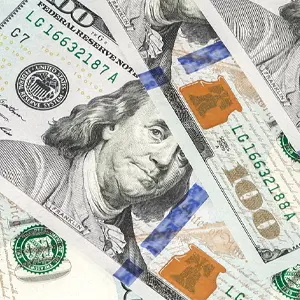Does Getting Free Money Change our Behavior?
George | July 11, 2018

Imagine walking into a casino, dropping a quarter into the first slot machine you see, and hitting the $100 jackpot! Would this outcome change your gambling behavior for the rest of the evening? This theoretical question was posed by Nobel-award-winning economist Richard Thaler during his research on what would become known as the house money effect.
When is a $100 not a $100?
As economists, Thaler and his research partner, Eric Johnson, knew what the answer ought to be. Regardless of how you came by the cash—whether through glorious good fortune or hours of hard work—$100 is always worth $100. So, it should always be treated the same way. However, their research revealed that most people do not think like that. For many of us, hard-earned cash is handled with respect, spent judiciously, or invested prudently. In contrast, the coins that tumble out of a slot machine can be squandered with frivolous abandon.
Of course, there’s nothing wrong with celebrating good fortune. However, the house money effect could have crucial implications if your other activities at the casino include a few hands at the poker table. The presence of free money could encourage you to take more risks than you would otherwise. Since neither the table nor the other players know or care where your cash came from, being less prudent in your risk judgments could put you at a particular disadvantage.
Free money everywhere
You might never be as fortunate as the slot machine player in the theoretical situation above, but you will likely have opportunities to get your hands on some free money nonetheless. Many US online poker sites offer bonuses to attract new members. Your free money could come as a bonus in the tens or hundreds of dollars. Alternatively, as a revolutionary online poker site did earlier this year, it could come as a bonanza of five million CHPs, a cryptocurrency.
Indeed, the prospect of this windfall might be one of the most significant factors influencing the choice of a casino site. Thus, free money is not only available, but it is also often the focus of attention.
So, how can one avoid falling victim to the house money effect? The spendthrift tendency arises because we haven’t mentally counted the free money as part of our wealth. This effect emerges whenever we experience any sudden and unexpected gain. It is not yet our money; it still feels like somebody else’s money. It is the slot machine’s money, the other players’ money, or the house’s money.
As soon as we get used to our new level of wealth, we begin to treat those dollars as we would any other in our pocket. The secret is to give yourself some time. Enjoy seeing the windfall cash in your account, but do not spend it right away. Leave it there until you get used to seeing your swollen account balance. Then, you can start playing with your usual rigor.